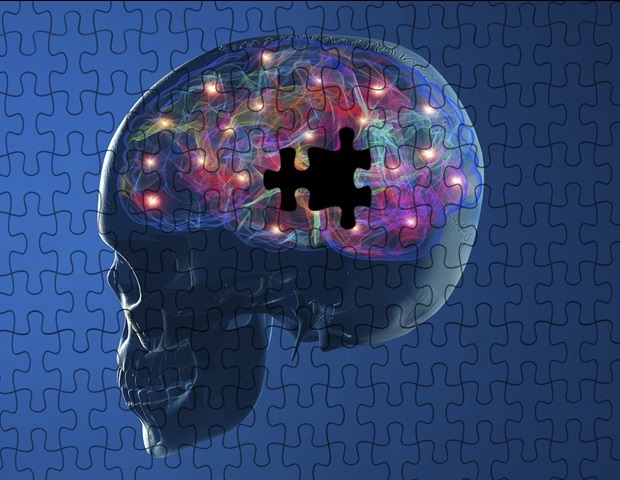Researchers have discovered that increased blood flow leads to stiffness in the hippocampus, a region of the brain that plays important roles in learning and memory. The hippocampus is one of the first areas in the brain affected by Alzheimer's disease, a brain disorder that erodes memory and thinking skills, as well as the ability to do daily tasks. The findings are published in the journal Interface Focus .
"For the first time, we found that better blood flow makes the hippocampus area stiffer," says Associate Professor Mehmet Kurt, the director of Kurtlab. "This research suggests that one of the factors impacting hippocampus health might be reduced blood flow. This discovery opens up new potential ways to diagnose Alzheimer's before memory loss occurs.

" At the UW Center for Human Neuroscience and at the Icahn School of Medicine at Mount Sinai, researchers scanned the brains of 17 volunteers between the ages of 22 and 35 using magnetic resonance elastography (MRE). MRE, which combines magnetic resonance imaging (MRI) with sound waves , provides researchers with information to create detailed images of varying levels of stiffness in the brain. "We wanted to find out how blood flow could potentially affect brain stiffness through MRE," says Ph.
D. student Caitlin Neher, who led the study. "The hippocampus is the only part of the brain that shows this relationship between blood flow and stiffness.
This may be because the hippocampus is a region with strong metabolic demand." Using factors like blood flow and stiffness components to quantify brain health could help lead to earlier detection of neurological diseases like Alzheimer's, which currently has no cure. Some studies reveal that people with Alzheimer's show softening in the hippocampus .
One hypothesis is that in early Alzheimer's, a reduction in blood flow could lead to this change in the brain, Neher says. "The study focused on the basic science question of how blood flow and brain stiffness are related," she says. "It would be interesting to eventually apply this to a patient population by collaborating with UW Medicine.
We want to better understand this link between brain stiffness and blood flow , and come up with diagnostic criteria." More information: Caitlin Maria Neher et al, Perfusion–mechanics coupling of the hippocampus, Interface Focus (2025). DOI: 10.
1098/rsfs.2024.0051.
Health

Exploring the link between blood flow, brain stiffness and Alzheimer's risk

Researchers have discovered that increased blood flow leads to stiffness in the hippocampus, a region of the brain that plays important roles in learning and memory. The hippocampus is one of the first areas in the brain affected by Alzheimer's disease, a brain disorder that erodes memory and thinking skills, as well as the ability to do daily tasks.















